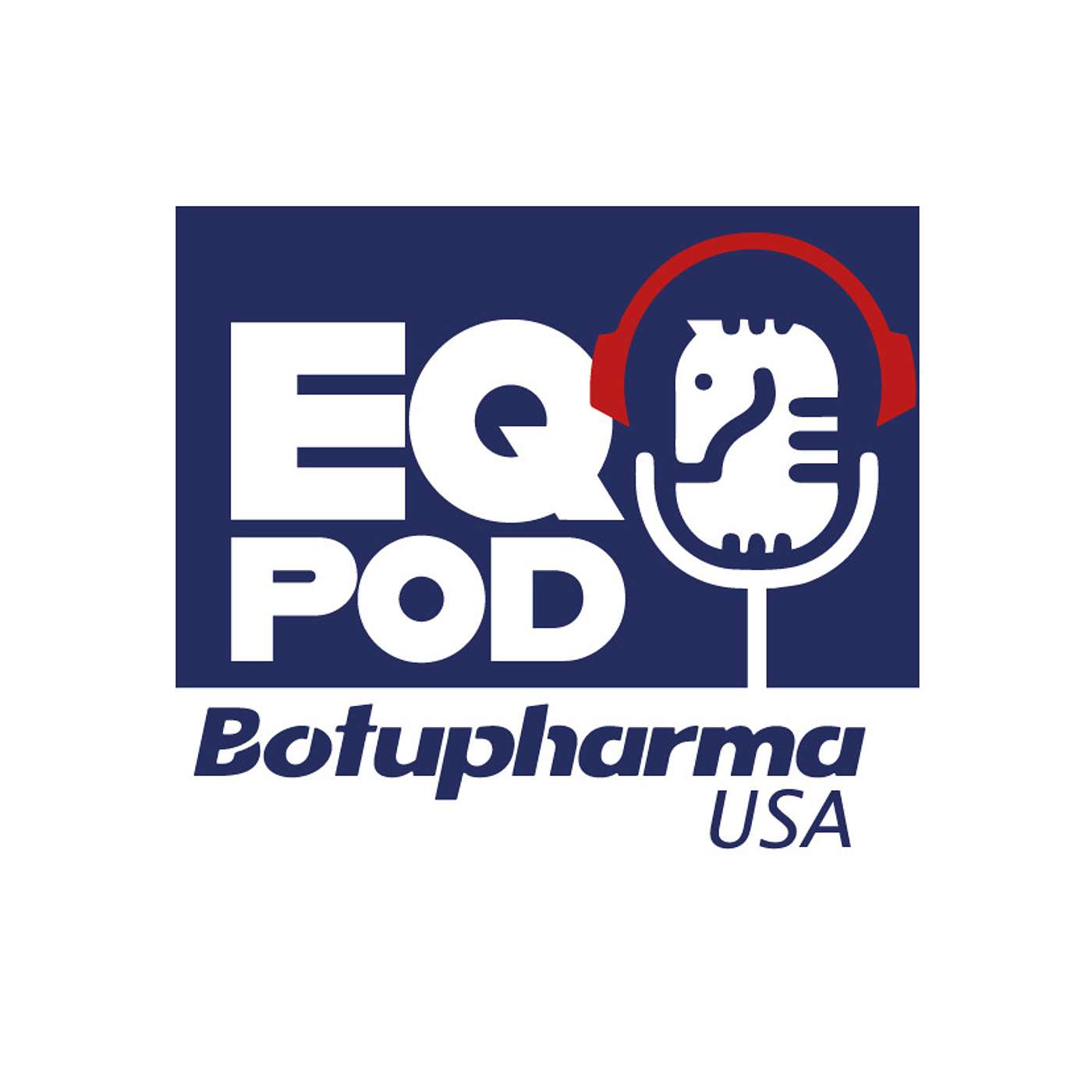
EQPOD0003 - Supplementation of Mares w/ Dr. Giovana Catandi
08/01/24 • 33 min
Summary
Dr. Giovana Catandi discusses her research on the effects of dietary supplements on oocyte metabolism and reproductive outcomes in mares. In her previous study, she found that oocytes from older mares have reduced metabolic function and lower developmental potential. In her latest study, she tested the effects of dietary additives on oocyte metabolism and found that certain supplements can improve oocyte quality and increase embryo production in older mares. She recommends a combination of supplements, including L-carnitine, antioxidants, vitamins, and minerals, to improve overall mare health and fertility outcomes. The prolonged use of supplements for at least 8 weeks is recommended to see positive effects. Dr. Catandi also mentions the importance of nutrition and overall health in improving fertility outcomes in mares.
Keywords
mare reproduction, oocyte metabolism, dietary supplements, oocyte quality, embryo production, mare health, fertility outcomes, L-carnitine, antioxidants, vitamins, minerals, nutrition
Takeaways
Oocytes from older mares have reduced metabolic function and lower developmental potential.
Certain dietary supplements can improve oocyte quality and increase embryo production in older mares.
A combination of supplements, including L-carnitine, antioxidants, vitamins, and minerals, can improve overall mare health and fertility outcomes.
Prolonged use of supplements for at least 8 weeks is recommended to see positive effects.
Nutrition and overall health play a crucial role in improving fertility outcomes in mares.
Chapters
00:00 Introduction and Background
02:25 Study on Oocyte Metabolism in Older Mares
06:00 Effects of Dietary Supplements on Oocyte Quality
09:24 Practical Recommendations for Horse Breeders and Veterinarians
14:05 Key Ingredients in Dietary Supplements
18:29 How Supplements Reach the Oocyte
22:17 Duration and Timing of Supplement Use
24:08 Supplementation for Middle-Aged Mares
26:44 Importance of Overall Nutrition and Health
29:22 Future Research and Transgenerational Effects
32:40 Conclusion and Call for Further Research
Summary
Dr. Giovana Catandi discusses her research on the effects of dietary supplements on oocyte metabolism and reproductive outcomes in mares. In her previous study, she found that oocytes from older mares have reduced metabolic function and lower developmental potential. In her latest study, she tested the effects of dietary additives on oocyte metabolism and found that certain supplements can improve oocyte quality and increase embryo production in older mares. She recommends a combination of supplements, including L-carnitine, antioxidants, vitamins, and minerals, to improve overall mare health and fertility outcomes. The prolonged use of supplements for at least 8 weeks is recommended to see positive effects. Dr. Catandi also mentions the importance of nutrition and overall health in improving fertility outcomes in mares.
Keywords
mare reproduction, oocyte metabolism, dietary supplements, oocyte quality, embryo production, mare health, fertility outcomes, L-carnitine, antioxidants, vitamins, minerals, nutrition
Takeaways
Oocytes from older mares have reduced metabolic function and lower developmental potential.
Certain dietary supplements can improve oocyte quality and increase embryo production in older mares.
A combination of supplements, including L-carnitine, antioxidants, vitamins, and minerals, can improve overall mare health and fertility outcomes.
Prolonged use of supplements for at least 8 weeks is recommended to see positive effects.
Nutrition and overall health play a crucial role in improving fertility outcomes in mares.
Chapters
00:00 Introduction and Background
02:25 Study on Oocyte Metabolism in Older Mares
06:00 Effects of Dietary Supplements on Oocyte Quality
09:24 Practical Recommendations for Horse Breeders and Veterinarians
14:05 Key Ingredients in Dietary Supplements
18:29 How Supplements Reach the Oocyte
22:17 Duration and Timing of Supplement Use
24:08 Supplementation for Middle-Aged Mares
26:44 Importance of Overall Nutrition and Health
29:22 Future Research and Transgenerational Effects
32:40 Conclusion and Call for Further Research
Previous Episode

EQPOD0002 - Equine Placentitis w/ Dr. Carleigh Fedorka
Dr. Carleigh Fedorka, a specialist in reproductive immunology, discusses placentitis in horses. Placentitis is inflammation of the placenta, most commonly caused by bacteria entering through the cervix. Dr. Fedorka emphasizes the importance of early detection and monitoring of mares for signs such as premature mammary gland development and vulvar discharge. She also discusses the use of antibiotics, progestins, and anti-inflammatory medications in the treatment of placentitis. Dr. Fedorka highlights the need for research funding and support to further our understanding of the disease and develop biomarkers for diagnosis and treatment.
Next Episode

EQPOD0004 - Advancements in Equine Reproduction w/ Jenn Hatzler
Dr. Jen Hatzel, an associate professor at Colorado State University's Equine Reproduction Lab, discusses the advancements in equine reproductive techniques, particularly in the areas of intracytoplasmic sperm injection (ICSI) and in vitro fertilization (IVF). She explains how ICSI has become a popular technique for creating embryos in horses, especially for mares with fertility issues or stallions with poor semen quality. She also highlights the potential of IVF in the equine industry and the benefits it offers, such as the ability to produce more quality embryos and the preservation of oocytes for future use. Dr. Hatzel also discusses the importance of post-mortem oocyte harvesting and embryo creation as a salvage procedure for owners who have lost a valuable mare. She emphasizes the need for continued research and advancements in cryopreservation techniques and encourages young veterinarians to consider a career in academia to contribute to the field of equine reproduction.
If you like this episode you’ll love
Episode Comments
Generate a badge
Get a badge for your website that links back to this episode
<a href="https://goodpods.com/podcasts/eqpod-by-botupharma-usa-658181/eqpod0003-supplementation-of-mares-w-dr-giovana-catandi-86551873"> <img src="https://storage.googleapis.com/goodpods-images-bucket/badges/generic-badge-1.svg" alt="listen to eqpod0003 - supplementation of mares w/ dr. giovana catandi on goodpods" style="width: 225px" /> </a>
Copy




